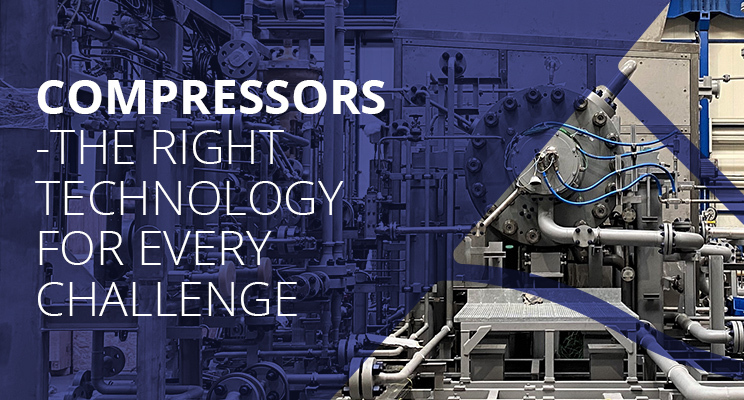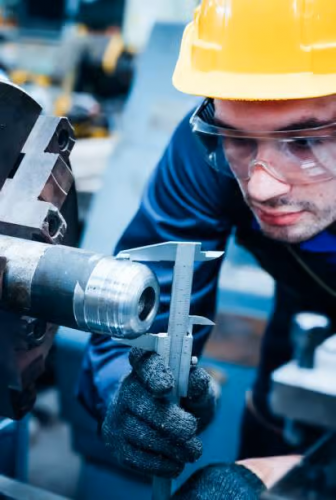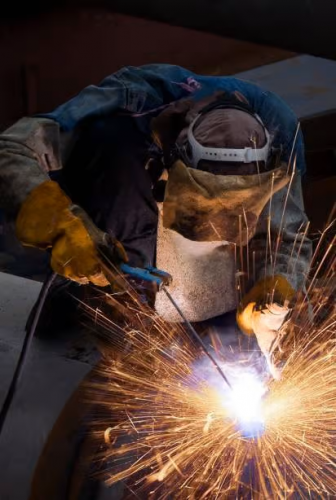
Rockfin resilient to pandemic
March 17, 2021
Is Poland set for a hydrogen boom?
April 22, 2021The extractive industry also includes LNG, bio-LNG and hydrogen, where compressors are present at every stage, from extraction to the processing of raw materials – explains Michał Wróblewski Vice President of the Board.
How come there is such interest in compressors at Rockfin?
Rockfin has been delivering demanding projects for the oil and gas industry in onshore and offshore applications for over 30 years. Our products meet not only ASME and API industry standards, but also those imposed by customers as well as contractors of the global oil and gas sectors such as Shell, Total, BP, and Chevron. One of the most necessary components in this business are compressors and therefore the devices that support their work.. This was therefore a natural direction for the development of Rockfin competencies. In fact, we entered this field almost a decade ago with a project for MAN ENERGY SOLUTIONS. One of our current projects involves the productioncompletion of four FPSO (Floating production, storage and offloading) compressor systems for Petrobras in Brazil, which will be installed some 150 kilometres off the Brazilian coast, at a depth of 930 metres. They will be capable of producing 70,000 barrels of oil and four million cubic metres of gas per day. The FPSO is expected to enter service in 2023 and will remain in Brazil for 25 years.
So compressors are primarily used in raw material extraction?
Exactly, for example, paraffin and gas. A compressor is a powered machine whose task in a technological process is to increase pressure or and to set gas or another medium in motion. Wherever pressure is to be increased and flow is to be imparted – there are compressors. However, Rockfin doesn’t design compressors, but rather auxiliary systems that integrate compressors with equipment from manufacturers such as MAN, Siemens, Atlas Copco, Baker Hughes, Burckhardt Compression, Howden, MHI, and SIAD. You could say that we are a so-called ‘packager’. I would like to highlight here the fact that the efficiency and reliability of the complete compressor set depends largely on the accuracy and quality of the integration of the whole system. And this is our main task.
The extractive industry itself, however, doesn’t have very forward-looking connotations. There is a lot of talk about shrinking oil reserves, for example.
To the layman, this branch of the economy may seem passe. That is true. But the extractive industry also includes LNG (Liquefied Natural Gas), bio-LNG and hydrogen, where compressors are present at every stage, from extraction to the processing of the raw material. In addition, Rockfin’s mission is to support energy transition by, among other things, manufacturing equipment for transporting clean fuels. We want to offer our customers technology and product support across the board. This is why we have been investing in building compressor systems.
Recently, one of the hot topics has been LNG. More and more European countries are interested in this type of gas.
This is not surprising. European countries are implementing the Paris Agreement and introducing their own energy policies aimed at increasing the use of renewable and clean energy sources. LNG in this decade, or at least in the next few years, will become even more prominent. It is a much cleaner gas, less harmful to the environment with a smaller carbon footprint. In the liquefaction process, carbon dioxide is eliminated practically to zero. That is why at Rockfin we also intend to support this particular extractive industry.
What type of compressors are you currently seeing most demand for?
We build auxiliary systems for centrifugal, screw and reciprocating compressors for our clients. In fact, we currently have an interesting project for which includes a reciprocating compressor to be installed on a cruise ship for Wärtsilä Energy. Its purpose will be to increase the pressure of LNG in the system. The compressor is supplied by Burckhardt Compression and the auxiliary systems by Rockfin. We are also seeing very strong interest and use of compressors in upstream units, i.e., those associated with production, and the previously mentioned FPSO project. These are very advanced and technically sophisticated units with demanding requirements, such as floating refineries, which extract the raw material and process it by separating the oil into fractions. At the moment, we are producing entire compressor package systems for FPSO units – engines, oil systems, and boosters. The business outlook in the FPSO market is very promising for Rockfin. Brazil alone expects around 20 such units to be built by the end of 2025, and between 40 and 50 by the end of the decade.
And how much has your portfolio grown when we talk about compressors?
In the last three years, we have partnered with Howden, Atlas Copco, Baker Hughes and the aforementioned Burckhardt Compression. We also see great potential in terms of new prospective customers that we can partner with in this area, which in turn will increase our market share.
Working with global clients also means having to improve your skills and obtain the appropriate certifications.
The energy sector, especially in the face of global transformation, is very dynamic. However, in recent years, we have acquired the necessary qualifications to handle projects in the area of compressors at every stage of development. This is because we work to the standards of global brands, such as: ExxonMobil, Shell Total, BP, Chevron, Repsol, Saudi Aramco, ADNOC, and Petrobras. We can also cooperate with operators from the Middle East, which is illustrated by Rockfin being awarded certificates from ADNOC (Abu Dhabi National Oil Company) and Saudi Aramco.
We are constantly acquiring new customers and are open to new partnerships. I have the Howden company slogan in mind right now – ‘The right technology for every challenge’. This should be the motto of the energy transformation field and we are happy to be part of it with our highly developed engineering competence.














